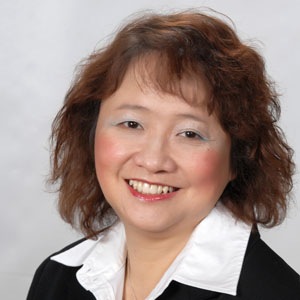Prof. Mei-Po KWAN
Prof. Mei-Po KWAN
Professor and Director of Space-Time Analysis and Research Lab (StarLab)
Department of Geography and Geographic Information Science
University of Illinois at Urbana-Champaign (UIUC)
USA

Mei-Po Kwan is Professor of Geography and Geographic Information Science and Director of the Space-Time Analysis and Research (STAR) Laboratory at the University of Illinois at Urbana-Champaign. She had served as an editor of Annals of the American Association of Geographers for 12 years and is editor of the book series entitled SAGE Advances in Geographic Information Science and Technology. She is an Associate Editor of Travel Behaviour and Society and is a member of the editorial boards of Journal of Transport Geography, Applied Geography, International Journal of Geographical Information Science (IJGIS), and Geographical Analysis.
Kwan has received many prestigious honors and awards, including the Distinguished Scholarship Honors, the E. Willard and Ruby S. Miller Award, and the Stanley Brunn Award for Creativity in Geography from the American Association of Geographers (AAG); the Alan Hay Award in Transport Geography from the Transport Geography Research Group of the Royal Geographical Society with the Institute of British Geographers (RGS-IBG); the Distinguished Scholar Award from the International Association of Chinese Professionals in Geographic Information Sciences (CPGIS); the University Consortium for Geographic Information Science (UCGIS) Research Award; the Edward L. Ullman Award from the AAG Transportation Geography Specialty Group; and the Melinda S. Meade Distinguished Scholarship Award from the AAG Health and Medical Geography Specialty Group. She was recognized in 2009 as a fellow of the American Association for the Advancement of Science (AAAS). In 2016 she was named a fellow by the John Simon Guggenheim Memorial Foundation.
Kwan’s research interests include environmental health, sustainable cities, smart mobility, urban/social issues in cities, and GIScience. Kwan has received support from sources including the U.S. National Institutes of Health, the U.S. National Science Foundation, the U.S. Department of Transportation, and the National Natural Science Foundation of China. She has delivered over 200 keynote addresses and invited lectures in 18 countries.
